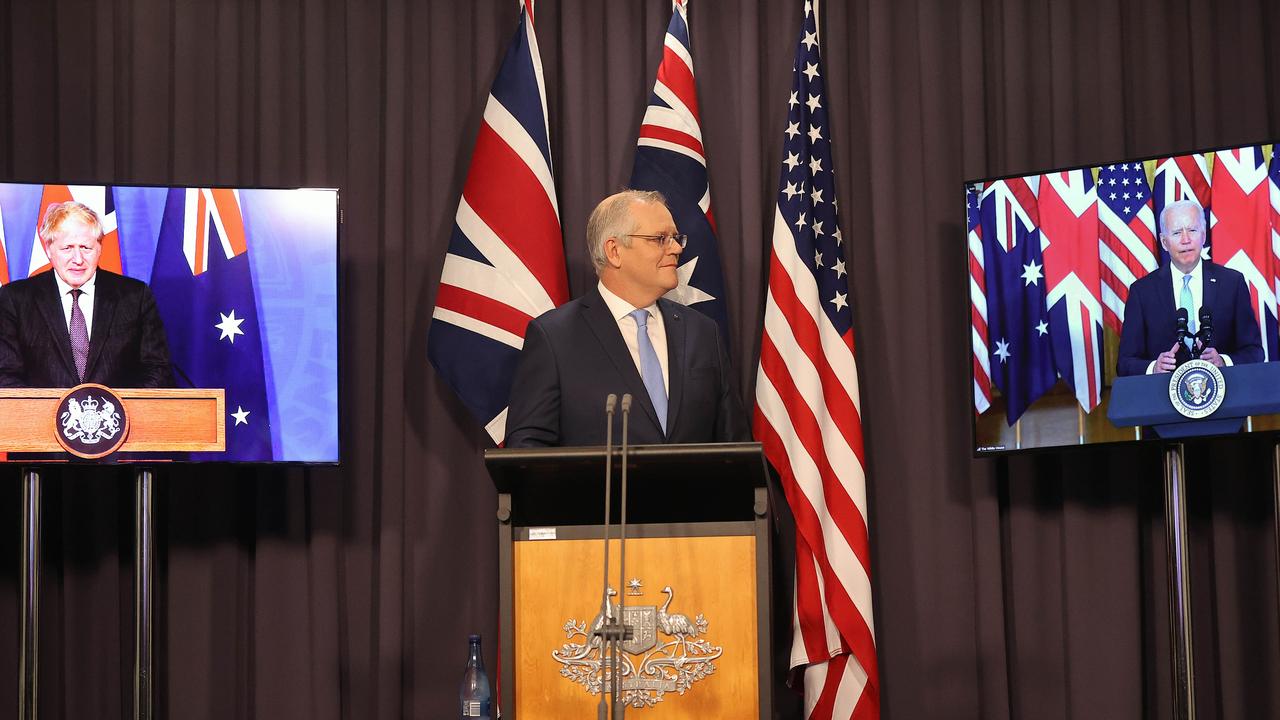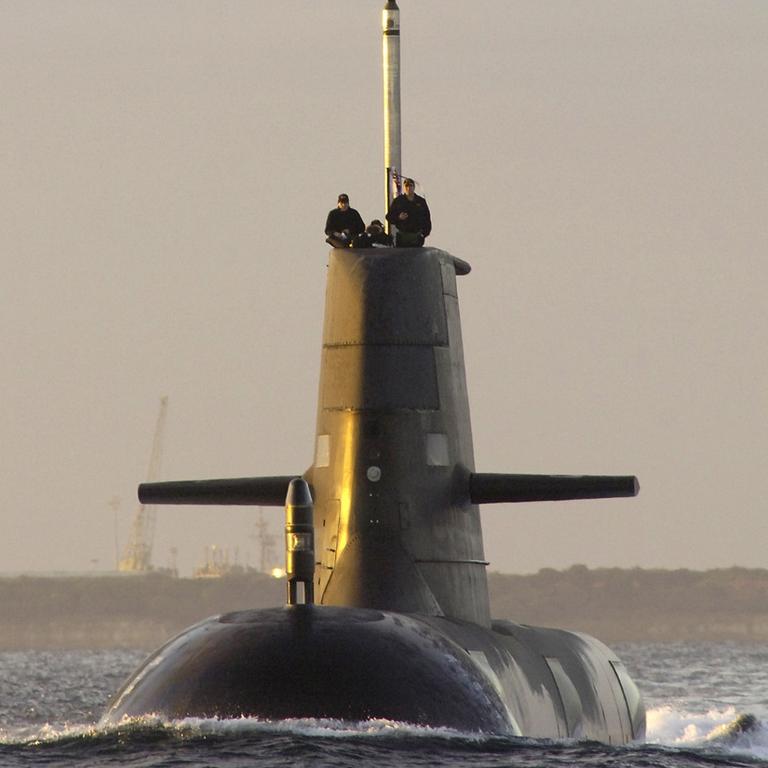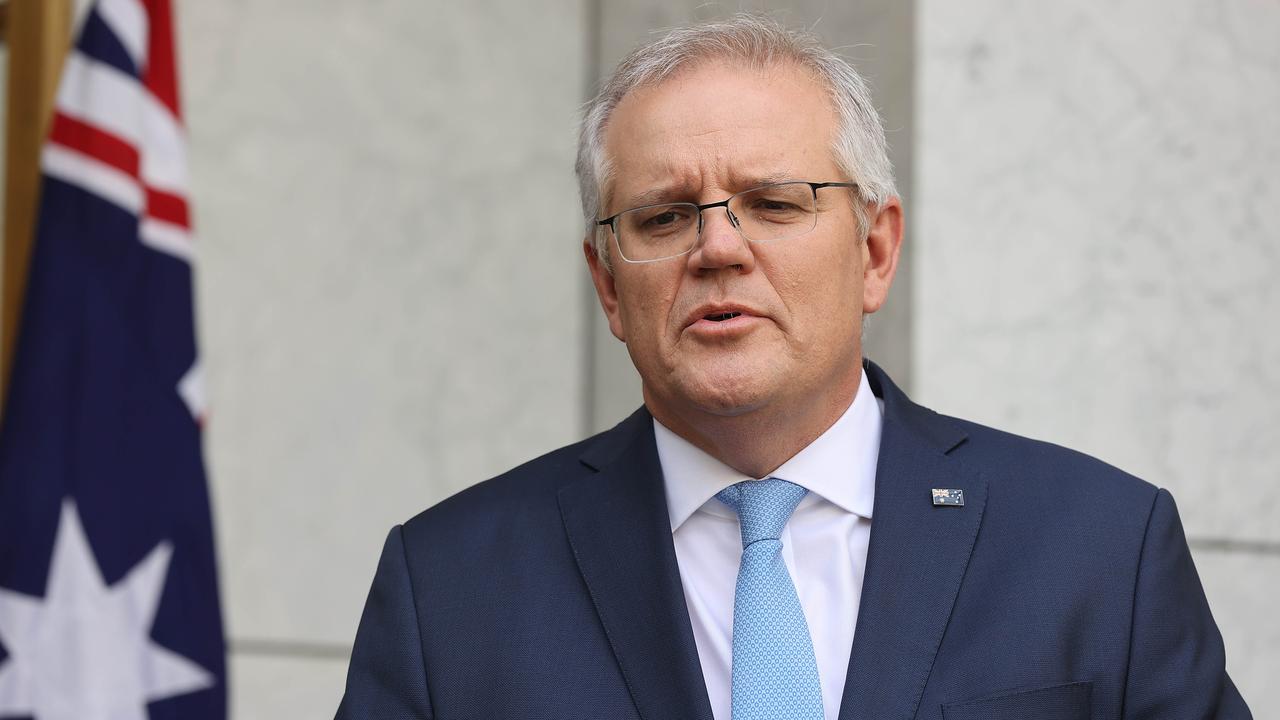China has responded to the historic military partnership signed by Australia, the US and the UK, and it’s fair to say it’s not best pleased
China’s embassy in the US has responded to the monumental and historic security pact signed by Australia, the United States and the United Kingdom this morning.
The three countries announced their “forever partnership” would focus on the increasingly tense situation in the Indo-Pacific and would involve Australia acquiring nuclear-powered submarines and more advanced military tech, including long-range Tomahawk cruise missiles.
“The relatively benign environment we have enjoyed in many decades in our region is behind us. We have entered, no doubt a new era, with new challenges for Australia and for our partners and friends and countries right across our region,” Prime Minister Scott Morrison said from Canberra today.
“This challenge will require more of us in Australia and all of us who share a common vision about peace and stability and security in our region so all nations can enjoy the fellowship of our region, the trade and the opportunities for our peoples so they can realise what they want for their countries just as we want for our country.
“Today I announce a new partnership, a new agreement that I describe as a forever partnership for a new time between the oldest and most trusted of friends, a forever partnership that will enable Australia to protect our national security interests to keep Australians safe.”

China lashes ‘cold war mentality’
China’s
Washington embassy was asked to comment on the new ‘AUKUS’ pact earlier
today, urging the three nations to “shake off their Cold-War mentality
and ideological prejudice.”
Chinese embassy spokesman Liu Pengyu said countries “should not build exclusionary blocs targeting or harming the interests of third parties. In particular, they should shake off their Cold-War mentality and ideological prejudice.”
Mr Morrison said he was yet to speak with Chinese President Xi Jinping about Australia’s new military partnership but said there was “an open invitation” to chat,
Talks between China and Australia have been frozen amid growing tensions and trade sanctions between the two countries.
“There‘s an open invitation for President Xi to discuss other matters. That has always been there,” Mr Morrison said.
“Australia is open to discuss issues important to the Indo-Pacific. I believe and hope we share the same objective of a peaceful Indo-Pacific where the sovereignty and independence of nations is understood and respected and enables their citizens to flourish. That’s what we all want.
“It is not an uncommon thing for countries to take decisions in their own strategic interests and build up their defence capabilities. China makes the same decisions as does other countries within our region. I don’t think that should be seen as necessarily extraordinary.”

Mr Morrison announced the AUKUS deal as the nation works to strengthen its military defences to counter China’s growing influence in the region.
Australia’s decision to boost its military arsenal amid already surging spending on defence is likely to further strain its fraught relationship with Beijing.
US President Joe Biden said the work to enable Australia to build nuclear-powered submarines would ensure that they had “the most modern capabilities we need to manoeuvre and defend against rapidly evolving threats.”
The three AUKUS leaders did not mention China in unveiling the partnership, dubbed, but their intent was clear.
“Our world is becoming more complex, especially here in our region, the Indo-Pacific. This affects us all. The future of the Indo-Pacific will impact all our futures,” Mr Morrison said.
UK Prime Minister Boris Johnson said they would work “hand in glove to preserve stability and security in the Indo-Pacific.”
On a visit last week to Southeast Asia, US Vice President Kamala Harris accused Beijing of “actions that … threaten the rules-based international order,” particularly its aggressive claims in the South China Sea, where frequent territorial disputes have erupted between China and its neighbours in recent years.
Technical and naval representatives from the three countries will spend the next 18 months deciding how to carry out Australia’s upgrade, which Mr Johnson said would be “one of the most complex and technically demanding projects in the world, lasting for decades.”

The new agreement has also disappointed France after Australia axed its $90 billion conventional submarine deal with the European ally, which had been personally backed by President Emmanuel Macron.
France’s foreign ministry said in a statement earlier that the decision to go with US submarines was “contrary to the letter and the spirit of the co-operation that prevailed between France and Australia.”
The submarine contract with France was worth around $50 billion however the cost had fluctuated due to it being years behind schedule and well over budget.
